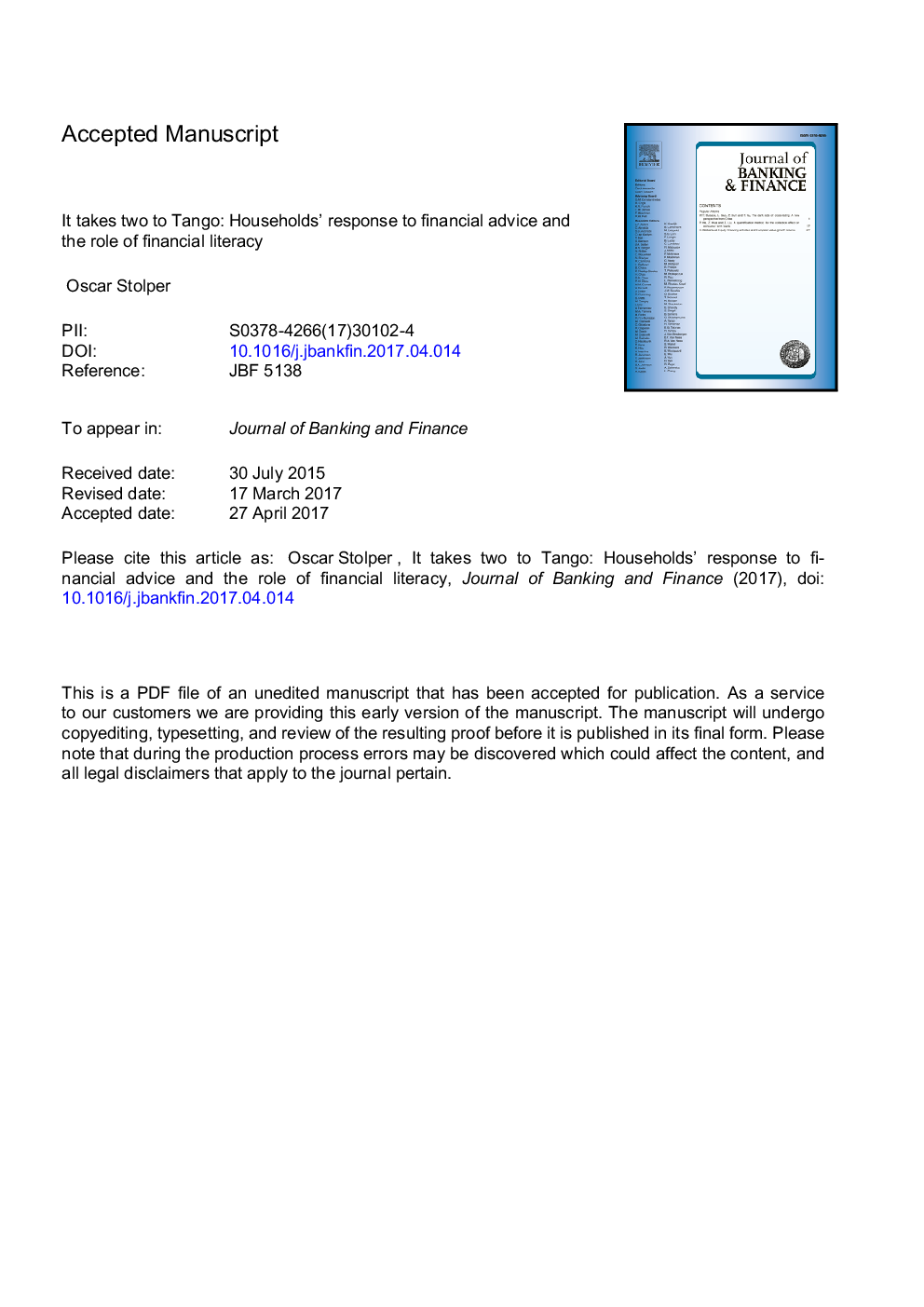| Article ID | Journal | Published Year | Pages | File Type |
|---|---|---|---|---|
| 7356533 | Journal of Banking & Finance | 2018 | 40 Pages |
Abstract
Using a unique dataset of over 6000 clients of a German advisory firm who have received rule-based financial advice on basic retirement provision and the insurance of major life risks, we investigate households' response to advice when the risk of product misselling is effectively minimized. Overall, we document a low degree of following standardized financial advice: two thirds of the households under review ignore the advice completely and if they choose to heed it, they tend to follow it only to a relatively little extent. Moreover, we find that standardized financial advice is not able to break up the negative effect of financial literacy on following advisors' recommendations. Instead, even in a setting where the potential for misselling is mitigated, the negative impact of advisees' financial knowledge on their propensity to implement financial advice remains statistically and economically significant for all advisees under review except for the affluent households. Our findings support the notion that an increase in financial literacy leads to a higher confidence in one's own judgment and prompts individuals to use financial advice as just another source of information they process when making their financial decisions.
Related Topics
Social Sciences and Humanities
Economics, Econometrics and Finance
Economics and Econometrics
Authors
Oscar Stolper,
